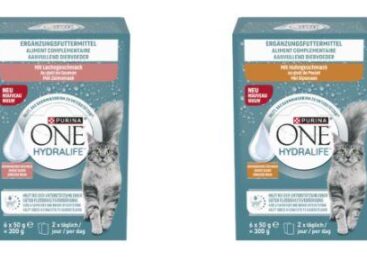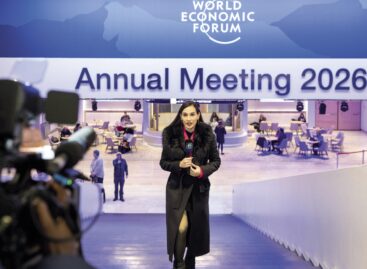Premiumisation postponed
COVID-19 brought a growth in both coffee value and volume sales, because people spent more time at home. In 2022 coffee companies had to increase prices due to global economic problems, and the volume sales growth stopped.

Dóra Tasi
marketing and media
manager
Jacobs Douwe Egberts
Dóra Tasi, Jacobs Douwe Egberts Zrt.’s marketing and media manager: “In this unstable economic situation, our experience is that consumers don’t cut back on their coffee consumption first, but they try to substitute their favourite brands with cheaper products. This so-called downtrading is bad for the premium segment.” Gabriella Szitó, Tchibo Budapest Kft.’s category manager: “Our expectation is that consumers will choose the well-known brands even more than before, plus they will hunt for promotions. We are reacting to this behaviour with the regular displaying of our products and promotion campaigns.”
Economising again

Márton Vajda
premium spirits and coffee manager
Coca-Cola HBC
Magyarország
Downtrading is an unfavourable turn of events even more because it comes after the recent premiumisation process. Márton Vajda, Coca-Cola HBC Magyarország’s premium spirits and coffee manager: “Due to the premiumisation, only capsule coffees are able to increase volume sales at the moment. We expect that after a market restructuring, premiumisation will once again be the driving force in the category.”

Oszkár Laknerfi
sales director
Mokate International
Hungary
Oszkár Laknerfi, Mokate International Hungary Kft.’s sales director: “The present economic situation reminds me of the period after 1990 – 20-30% inflation, weakening forint, unstable product supply, etc. Consumers are reacting the same way too, they have started buying the cheapest private label products.”

Veronika Cziklin
brand manager
Nestlé Hungária
Veronika Cziklin, Nestlé Hungária Kft.’s brand manager: “Our experience is that many coffee drinkers decide which product to purchase based on the price. In the current economic climate this may result in increased sales for instant coffee products, as they have the best price-value ratio.”
Strategic innovation
Although in the short term manufacturer brands must react to the new market conditions, in the long term it will be crucial for them to follow a well-planned strategic innovation approach. Ms Tasi told that in the spirit of this they (re)launched a completely new coffee system in March: Senseo coffee pads are industrially compostable, and they contain RainForest Alliance certified ground coffee. With the premium L’Or brand, the focus remains on limited edition capsule products made from hand-picked coffee beans, such as the Arabica Nyika blend from Zambia, or the growing region selected version of Brazil in the whole bean portfolio. L’Or will also come out with new flavoured capsules, in caramel, chocolate and vanilla versions.
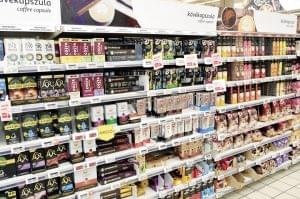
The price increase due to the rise in purchase prices will certainly rearrange the market on the short run
Exceptional quality in limited edition capsules

Szitó Gabriella
kategóriamenedzser
Tchibo
For Tchibo the economic situation doesn’t influence the company’s sustainability efforts, which they started years ago. Ms Szitó told that with premium products they continue the cooperation with Fairtrade and the Rainforest Alliance, e.g. with Tchibo Barista and Tchibo Cafissimo, and the same is true for the Privat Kaffee range that can only be bought in Tchibo Shops and online. Growing region selected products will stay in the product portfolio, for instance limited edition Tchibo Cafissimo capsule coffees will hit the shops several times a year.
Sustainability from nature to consumer
Sustainability is a priority for Nescafé – the market leader in the instant coffee segment – too. As Ms Cziklin explained it to our magazine, Hungarian coffee lovers aren’t really concerned with sustainability yet, but for Nescafé it is a core value and the company is working hard on making products more sustainable. As part of this strategy, from 2022 the packaging of Nescafé 3in1 products made in Szerencs becomes simpler, so that it can be recycled using the necessary collection, selection and procession infrastructure. By implementing its “Cup of Respect” programme, the company helps farmers to grow high quality coffee more sustainably, and it also has social programmes for creating better living conditions for the farmers and their families.
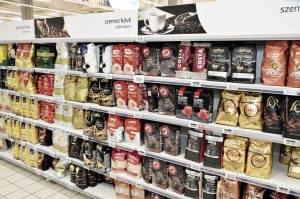
The success of single-serve packages and coffee beans is unbroken
Their mission is promoting the consumption of quality coffee
Coca-Cola Magyarország believes that home consumption is still the most popular form of coffee drinking. Mr Vajda stressed that they don’t make compromises when it comes to high quality and sustainability. All Costa Coffee products come from responsible and sustainable sources, and 100% of the coffee used by the brand is Rainforest Alliance certified. Premium Italian coffee brand Caffè Vergnano is the first in the world to be marketed in 100% sustainably sourced, compostable capsules. In addition to this, the brand makes it a priority to improve the situation of women in the coffee business, with special regard to the better living conditions of coffee growers.
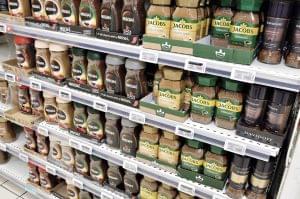
With recent developments in the economic situation, instant coffee products may gain new impetus on account of their great value for money
Brand building never stops
Mr Laknerfi thinks that the period we are facing will bring the strengthening of consumer consciousness. From the different retail channels, once again it is likely to be discount supermarkets to come out of the situation as the winners. Mokate International Hungary Kft.’s sales director would be surprised to see many new innovations in the years to come. The company will enter a new category soon. Last year they started a major brand building campaign, which continues in 2022.//
There are green efforts, but it is still capsule coffee sales that are growing the fastest

Kriszta Bodnár
business development manager / FMCG GfK
Moving annual total (MAT) data from June 2022 show that more than one quarter of households bought capsule coffee in the last year, and their number increased by a robust 3 percentage points. More buying households purchased more capsule coffee, as volume sales were up 13.8%. Sales increased the most in supermarkets and they also developed nicely online. Value sales augmented by almost 21% in both the capsule and the whole bean segment. At the same time ground and roasted coffee volume sales dropped 10%, and 5% less instant coffee was sold.
In volume it is still the ground and roasted segment that dominates, but in terms of value sales capsule coffee reigns. We can see from the sales data that many 30-49 year old consumers stop buying ground and roasted coffee, switching to capsule products. Typically instant coffee is purchased by consumers older than 50 years, but the segment’s penetration level is dropping even in this age group. It is interesting that a growing proportion of consumers above the age of 40 are buying 3in1 products. As a conclusion we can say that drinking capsule coffee is becoming more and more common in Hungarian households. //
This article is available for reading on pp 92-96 of Trade magazin 2022.08-09.
Related news
Related news
Retail sales of organic products in Hungary increased by 13.9% – our country is the second fastest growing market in the European Union
🎧 Hallgasd a cikket: Lejátszás Szünet Folytatás Leállítás Nyelv: Auto…
Read more >Davos 2026: the risk premium has appeared on store shelves
🎧 Hallgasd a cikket: Lejátszás Szünet Folytatás Leállítás Nyelv: Auto…
Read more >

